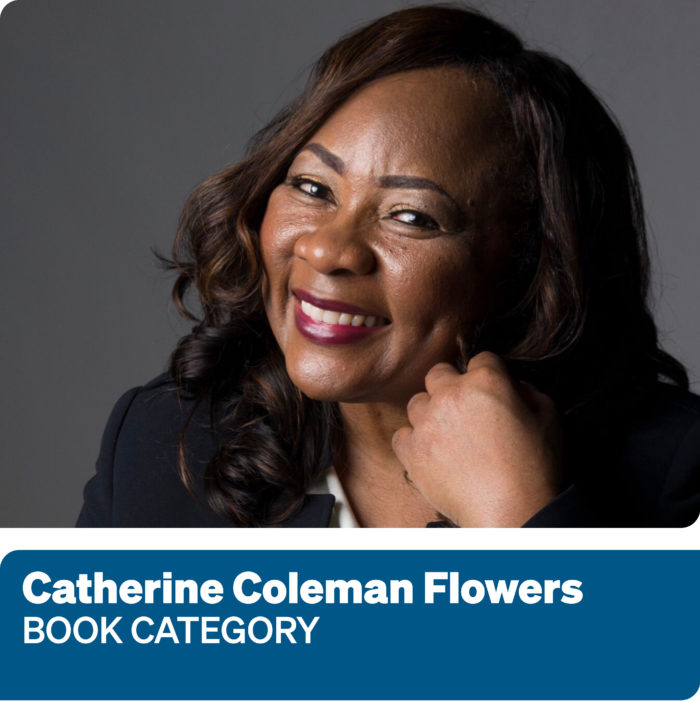Celebrating our 2022 Reed Environmental Writing Award winners, Catherine Coleman Flowers and Alexis Okeowo
Two writers who have brought to light a public health calamity unfolding in rural Alabama as a result of neglected sewage infrastructure won SELC’s 2022 Phillip D. Reed Environmental Writing Awards. In the book category, Catherine Coleman Flowers received the Reed Award for Waste: One Woman’s Fight Against America’s Dirty Secret. Alexis Okeowo received the Reed Award in the journalism category for “The Heavy Toll of the Black Belt’s Wastewater Crisis,” published by The New Yorker.
The Reed Award celebrates writers who achieve both literary excellence and offer extraordinary insight into the South’s natural treasures and environmental challenges. Presented each year, the Reed Awards recognize outstanding writing on the Southern environment in two categories: the Book Category for works of nonfiction (not self-published) and the Journalism Category for newspaper, magazine, and online writing published by a recognized institution such as a news organization, university, or nonprofit group.
An award ceremony was held in honor of the winners during the Virginia’s Festival of the Book on March 18, 2022. Michael Mann, an author, American climatologist and geophysicist, and director of the Earth System Science Center at Pennsylvania State University, was this year’s featured speaker.
2022 Award Winner: Catherine Coleman Flowers

Flowers grew up in Lowndes County, Alabama, a place that’s been called “Bloody Lowndes” because of its violent, racist history. Once the epicenter of the voting rights struggle, today it’s Ground Zero for a new movement that is Flowers’s life’s work. It’s a fight to ensure human dignity through a right most Americans take for granted: basic sanitation. Too many people, especially the rural poor, lack an affordable means of disposing cleanly of the waste from their toilets, and, as a consequence, live amid sewage.
Flowers calls this America’s dirty secret. In Waste she shares the inspiring story of her evolution as an activist, from country girl to student civil rights organizer to environmental justice champion and MacArthur Fellow. It shows how sanitation is becoming too big a problem to ignore as climate change brings sewage to more backyards, and not only those of poor minorities.
2022 Award Winner: Alexis Okeowo

Okeowo is a staff writer at The New Yorker who has reported on conflict, human rights, and culture across Africa, as well as from Mexico and the American South. In “The Heavy Toll of the Black Belt’s Wastewater Crisis” for the New Yorker, Okeowo explores the fact that many rural households in America don’t have access to safe sewage systems. Their piece focuses on Alabama communities entrenched in poverty and located in an area with unusual geology, which have combined to create a public health disaster.
Named journalist of the year in 2020 by the Newswomen’s Club of New York, Okeowo is also the author of “A Moonless, Starless Sky: Ordinary Women and Men Fighting Extremism in Africa,” which received the 2018 PEN Open Book Award. Okeowo’s work has been anthologized in “The Best American Sports Writing” (2017) and “The Best American Travel Writing” (2017).
2022 Award Ceremony Speaker

Michael E. Mann is a Distinguished Professor of Atmospheric Science at Penn State, with joint appointments in the Department of Geosciences and the Earth and Environmental Systems Institute (EESI). He is also director of the Penn State Earth System Science Center (ESSC).
His most recent book, The New Climate War, discusses how fossil fuel companies have waged a 30-year campaign to deflect blame, responsibility, and delay action on climate change. Armed with this knowledge, he offers a battle plan for how we save the planet.
Watch a recording of the ceremony below.
